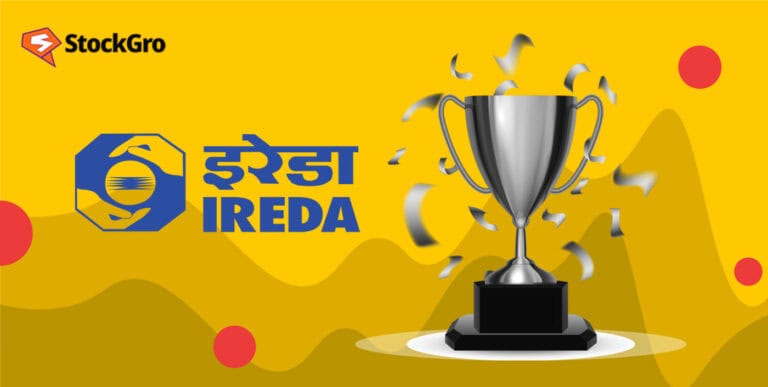Exploring a relatively less-travelled path for Indian investors
Table of contents
The Indian stock market offers a variety of different landscapes for investors who want to put their funds to good use. These include the well-established primary market (stock exchanges like NSE and BSE) and the secondary market (where previously issued securities are traded).
However, there exists a lesser-known version of these markets – also called the third market – that presents its own unique opportunities and challenges.
In this article, we’re going to explore what this third market is with examples, and understand whether you’re a good fit for it or not.
Understanding the third market in stock investing
The third market refers to a decentralised network of buyers and sellers who trade securities outside of the traditional stock exchanges.
Unlike the well-defined structure of the primary and secondary markets, the third market operates with less stringent regulations.
The third market itself is a very broad category. Below, we’ve listed two of the biggest constituent categories within the third market that will help you understand it better overall:
- OTC (Over-the-Counter) trading: In the OTC markets, transactions occur directly between interested parties where they completely bypass the exchange platform. In these markets, price discovery and negotiations happen between the two parties bilaterally. As a result, no broker fees are paid either.
An Indian company, for instance, looking to raise capital for expansion might issue commercial paper (short-term debt instrument) directly to a high net-worth investor. The company and the investor negotiate the interest rate and other terms of the agreement directly, without involving a stock exchange. This would be how a typical OTC transaction took place. - Unlisted securities: This is perhaps the most important part of the third market. It deals with securities that are not listed on recognized stock exchanges. These can include:
- Shares of small and unlisted companies
- Privately-placed debt instruments
- Bonds issued by corporations or municipalities
- Derivatives not exchange-traded
Compared to regular markets which are governed by the Securities and Exchange Board of India (SEBI) and are heavily regulated, third market securities and investments can be bought and sold with a lighter touch. However, some regulations may still apply depending on the security type and transaction details.
What are the benefits of investing in the third market?
While regular markets are safe and highly liquid, the third market offers its own advantages to investors.
- Access to untapped investment opportunities: The third market provides you with a platform to invest in promising young companies or niche businesses that haven’t yet met the listing requirements for major exchanges. New companies identified at a young age are a typical high-risk and high-reward investment – something venture capital concerns itself with.
- Negotiable prices: Unlike the standardised exchange environment, the third market allows for negotiation between buyers and sellers. This could be particularly helpful if you’re either an investor or a company trying to raise capital in equity or debt.
What should you be careful about?
While the third market presents enticing opportunities, it’s crucial to be aware of the inherent risks involved too:
- Lower liquidity: Securities traded in the third market often have lower trading volume compared to exchange-listed stocks. This can make it difficult to enter or exit positions
- Counterparty risk: Since transactions occur directly between parties, there’s a greater risk of dealing with unreliable counterparties who might default on their obligations. These risks compel you to be more mindful of who you’re getting in business with.
Frequently Asked Questions
Networking is probably the best place to start. If you’re a business trying to raise money, you could also start talking to angel investors. If you’re trying to invest in young companies, your local Chartered Accountant could also have some insights, or know someone who does. Startup incubators, which support young companies during their seed stages, could also be looking for potential third-market investment opportunities.
Here are some documents you should absolutely get behind:
Investment Memorandum (IM): This outlines the terms of the investment, including the security details, price, and your rights as an investor.
Subscription Agreement: This formalises your commitment to invest a specific amount in the company or security.
Shareholders Agreement (for equity): This governs the rights and responsibilities of shareholders in the company.
SEBI: SEBI regulates the issuance and trading of certain securities, like some bonds, that might be offered in the third market. Check if your investment falls under their purview.
RBI: The RBI regulates specific debt instruments like commercial paper. Make sure you understand any RBI regulations for the debt you’re considering.
Here are some you should absolutely not ignore:
Unsolicited offers with crazy returns: If it sounds too good to be true, it probably is.
Pressure to invest ASAP: Legitimate deals give you time to research. Don’t be pressured into a quick decision.
Lack of transparency: If the company or broker is vague about details, walk away. You deserve clear information about what you’re investing in.
Guarantees of success: Investments always involve risk. No one can guarantee you’ll make money.
Not necessarily. There are some questions you need to ask yourself first – Are you comfortable with high risk? What are your investment goals? How comfortable are you with researching companies, potential business partners, and early-stage companies?
